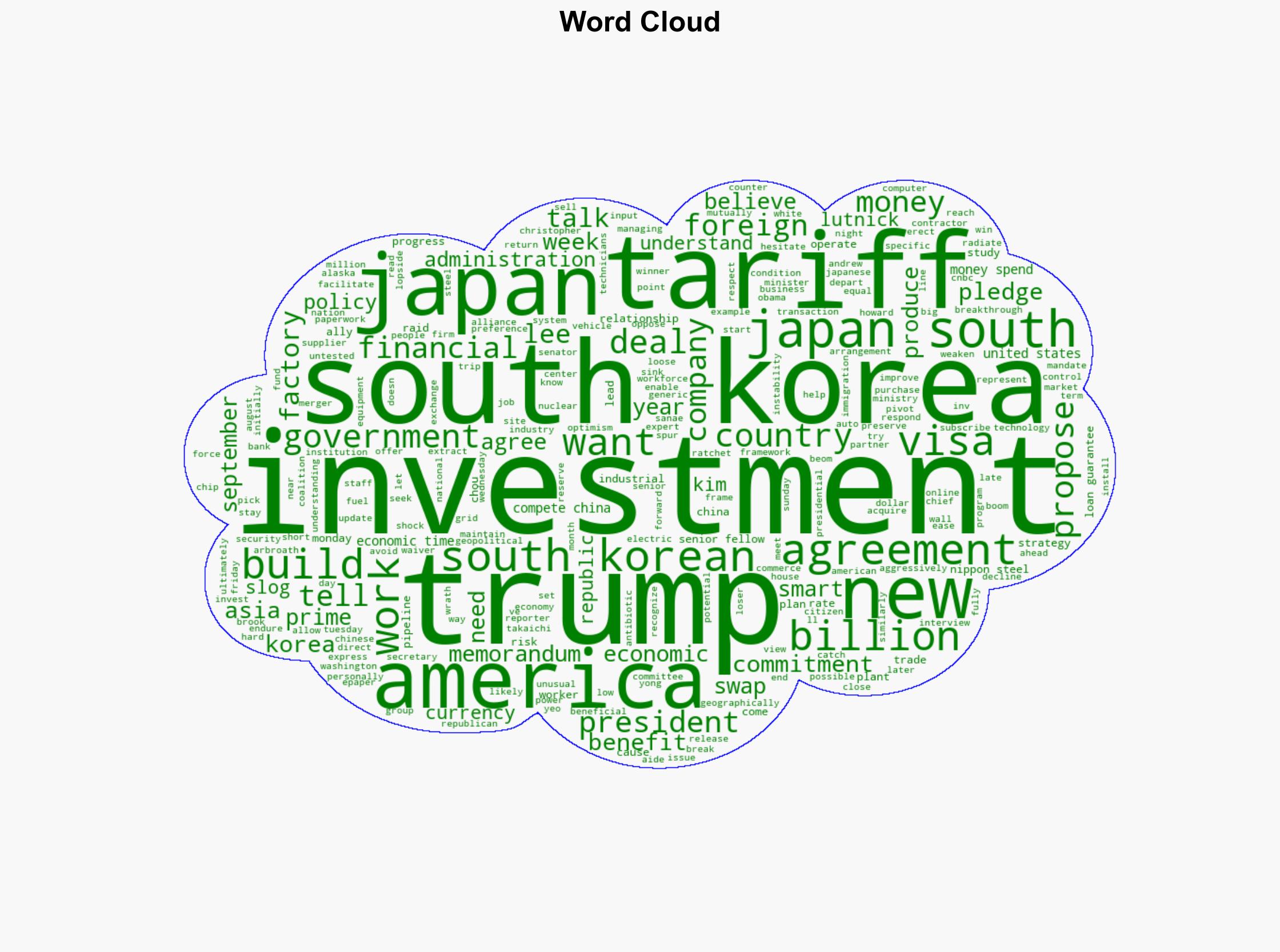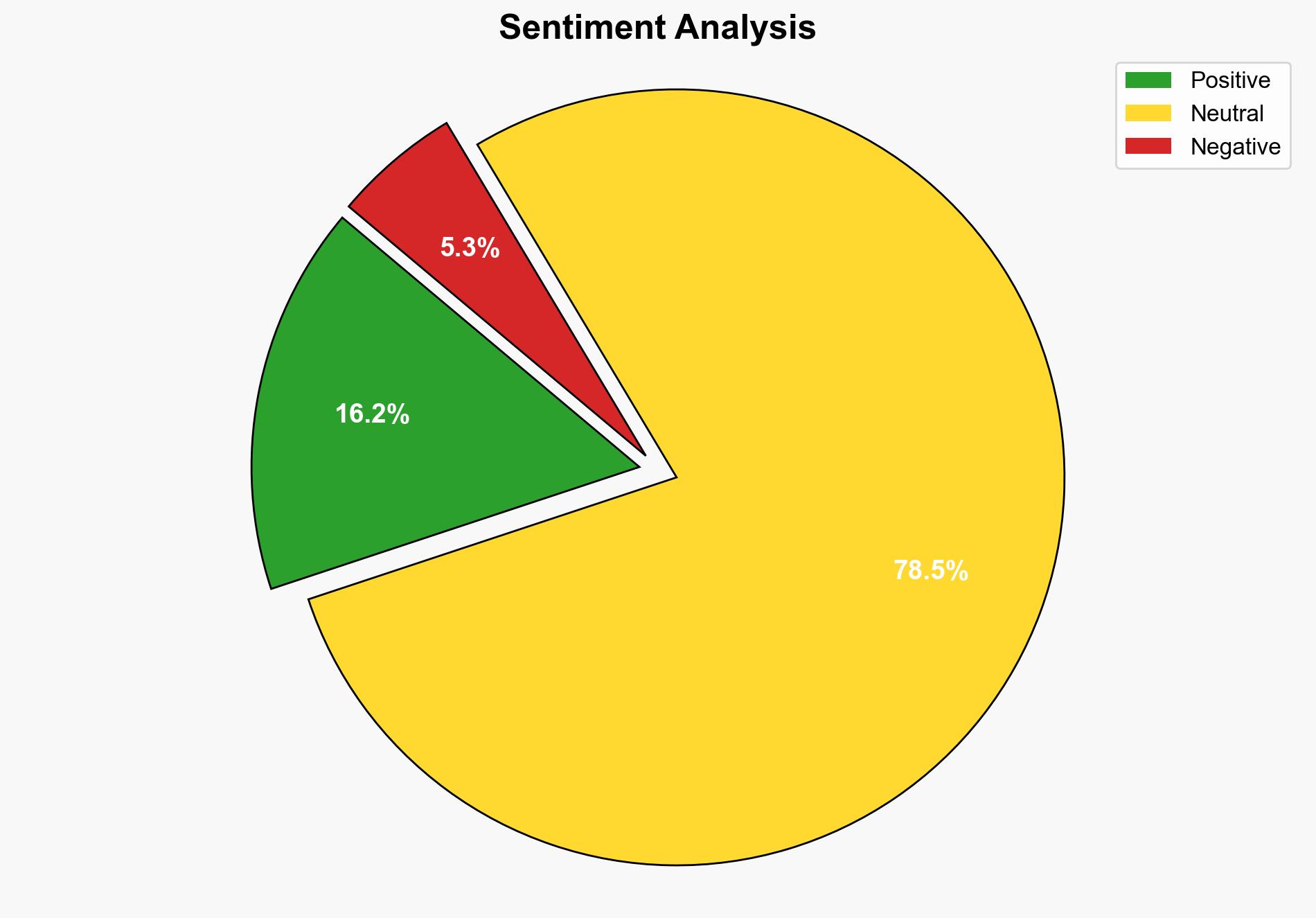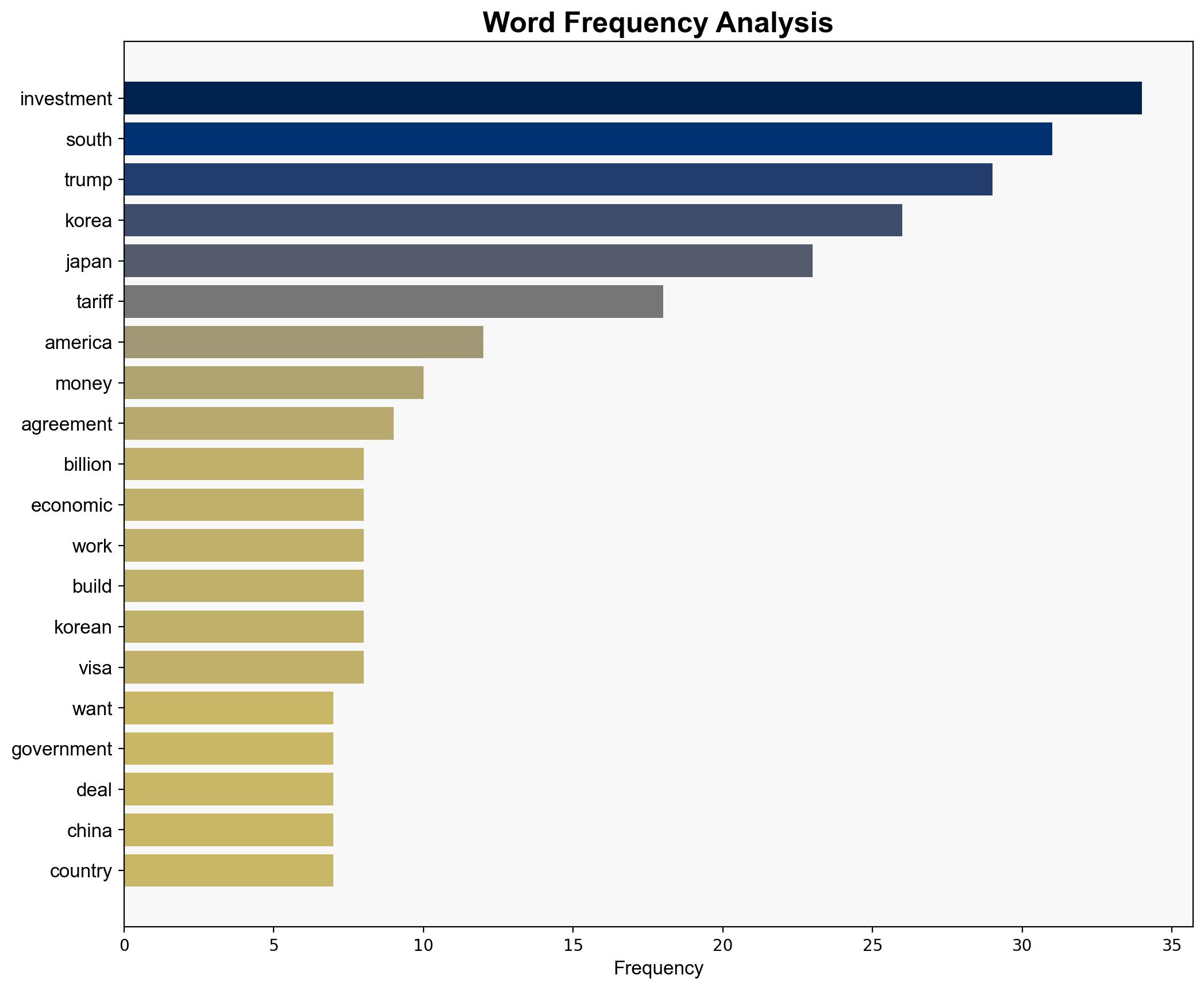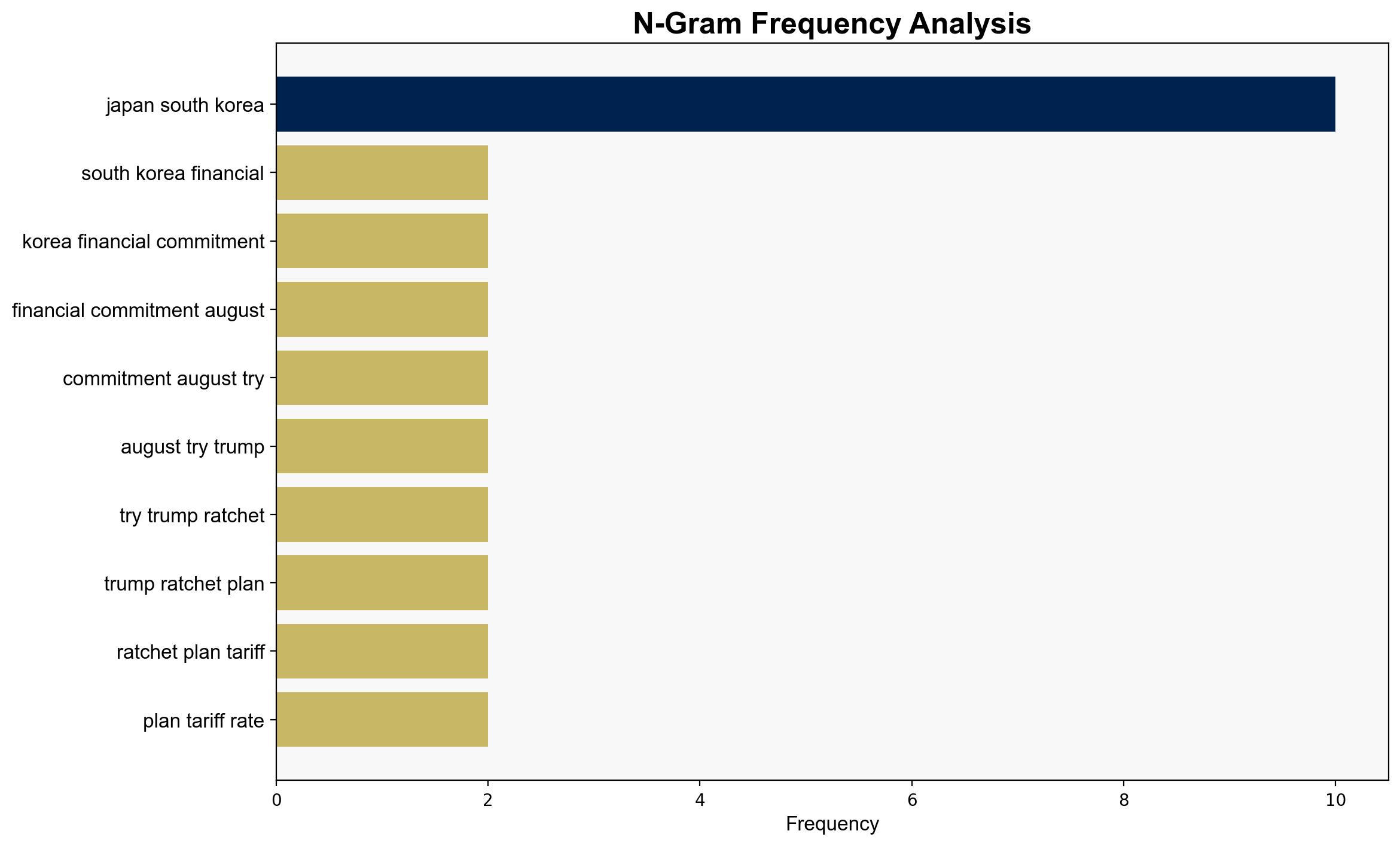In Japan and South Korea Trump will promote big investments but the details are still not clear – The Times of India
Published on: 2025-10-24
Intelligence Report: In Japan and South Korea Trump will promote big investments but the details are still not clear – The Times of India
1. BLUF (Bottom Line Up Front)
The most supported hypothesis is that President Trump aims to leverage tariffs to secure significant investments from Japan and South Korea, enhancing U.S. economic interests and countering China’s influence. Confidence in this hypothesis is moderate due to unclear details and potential resistance from involved parties. Strategic recommendation: Engage in diplomatic efforts to clarify terms and ensure mutual benefits, while preparing for potential economic and geopolitical repercussions.
2. Competing Hypotheses
– **Hypothesis 1**: President Trump is using tariffs as a strategic tool to coerce Japan and South Korea into making substantial investments in the U.S., thereby strengthening economic ties and countering China’s regional influence.
– **Hypothesis 2**: The investment proposals are primarily symbolic, intended to project economic strength and political success without substantial follow-through, due to the lack of clear details and potential logistical challenges.
3. Key Assumptions and Red Flags
– **Assumptions**: Hypothesis 1 assumes that Japan and South Korea view U.S. tariffs as a credible threat and are willing to comply with investment demands. Hypothesis 2 assumes that the lack of detail indicates a lack of genuine commitment.
– **Red Flags**: The absence of specific investment details and the reliance on memoranda of understanding suggest potential overstatement of commitments. The geopolitical context of competing with China may lead to exaggerated claims of economic cooperation.
4. Implications and Strategic Risks
– **Economic Risks**: Failure to secure concrete investment agreements could lead to economic strain and damaged relations with Japan and South Korea.
– **Geopolitical Risks**: Over-reliance on tariffs could strain alliances and push Japan and South Korea closer to China.
– **Psychological Risks**: Unmet expectations could lead to domestic and international disillusionment with U.S. economic strategies.
5. Recommendations and Outlook
- Engage in transparent negotiations to clarify investment terms and ensure mutual benefits.
- Prepare contingency plans for potential economic fallout if agreements are not reached.
- Scenario Projections:
- Best Case: Successful investments lead to strengthened U.S. economic position and improved regional alliances.
- Worst Case: Breakdown in negotiations results in economic and diplomatic tensions.
- Most Likely: Partial agreements with limited impact, requiring ongoing diplomatic engagement.
6. Key Individuals and Entities
– Donald Trump
– Sanae Takaichi
– Christopher Smart
– Andrew Yeo
– Kim Yong Beom
– Howard Lutnick
7. Thematic Tags
national security threats, economic diplomacy, U.S.-Asia relations, geopolitical strategy




